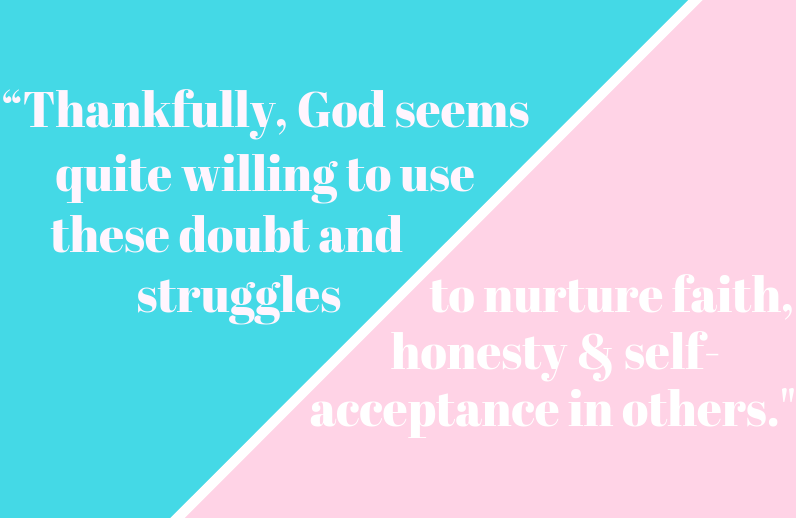For many, being a Christian at work is a particular challenge, but what about those whose job involves acting out their faith? When it is their job to provide pastoral care for others, how do they take care of their own faith? Insights spoke to Uniting Church ministers about how they do all of this while they serve their congregations. While they each gave some very different answers, all had ways of taking care of their faith and ensuring that it did not revolve entirely around their ministry.
Rev. Ellie Elia is Minister of the Word at Glenbrook Uniting Church in the Blue Mountains, a role she took up earlier this year.
Rev. Elia says that, while her job is itself spiritually helpful, “As an ordained minister I recognise how hard it can be to step off the production line of ‘doing church’ long enough to recognise that my own soul is parched and in need of living water.”
“When you spend your days crafting liturgy, listening to stories, holding hand in prayer, drinking coffee while plotting the Kingdoms causes, and discerning what Good News could possibly be spoken into the life of the church and for the sake of the word…it seems that so much of the great privilege of this vocation contributes to sustaining my own faith,” she said.
“That said, I often feel like I start Mondays as an agnostic—really unsure if the road to Sunday and the pulpit is at all possible. My faith is in constant dialogue with doubt and a deep struggle to make sense of what difference ‘what I do’ makes in the world.
“Thankfully, God seems quite willing to use these doubt and struggles to nurture faith and honesty and self-acceptance in others, so I have learnt to expect that this is just part of my process.”
Rev. Phil Swain is the Minister of the Word at Turramurra Uniting Church in Sydney’s Upper North Shore. He told Insights that he found his preparation for his work was itself helpful in sustaining his faith.
“My practice of faith or the way that I grow in my discipleship is completely connected to the work that I do,” he said.
“When I prepare for a sermon, I pray, I read scripture, I read other people’s insight, I reflect and I ponder how this relates to me – and in that process,
my faith and discipleship is sustained and grown.”
Faith and self-care
The ministers who spoke to Insights all nominated different methods to sustain their faith and practice self-care. Rev. Suzanne Stanton is Minister of the Word at Wahroonga Uniting Church. She nominated talking to others and hearing their faith stories as a way that she sustains her own faith.
“Conversations about faith give me hope as a Minister and inspire me – it’s wonderful to hear about other people’s experiences of God. And, even conversations about doubt are hopeful in their honesty and authenticity.
“Often these conversations emerge at the difficult points in people’s lives, and create deep meaning that helps to sustain them, and in having those conversations I am also sustained in my ministry.”
Rev. Swain indicated that he also found listening to others’ preaching to be helpful.
“My family think that I am a nerd – but I really enjoy listening to other people’s sermons online. I have four or five go-to sites or podcasts that really resonate with me, but I am open to listen to a broad range of speakers. I listen to sermons when I drive or walk. I do this for two reasons.
“One — because it is really helpful for sustaining my faith and two – because every now and again I get great ideas for my own preaching! I also love to have spiritual conversations with my non-congregational friends … they push me and make me go deeper.”
“I personally find it hard to separate my faith with the other “parts” of my life. For me they are all integrated. So even before I was a minister and working as a lecturer at a uni, my faith was part of who I am, so I couldn’t not have it influence the way that I teach or support students or interact with colleagues or influence the way that I responded to the power games.
“I know from my time in ministry that not everyone is the same as me – but I have found that my faith and life cannot be separated. So my being a Christian at work is the same as being a Christian at home or on the soccer field or wherever.”
On the other hand, others indicated that they needed time away from preparing a sermon to help their own faith in non-work contexts. Rev. Andrew Johnson is one of the Ministers at Hope Uniting Church in Maroubra as well as the Uniting Church Chaplain at UNSW. He told Insights that he relied on a number of “some of the most traditional” practices.
“If I am not making space to read scriptures outside of my preaching/teaching tasks, then I’m not feeding my own soul,” Rev. Johnson said.
“It’s vital for me to find time to sit and pray upon the Psalms for example, without thinking ‘what do I have to say about this?’”
“Letting the flow of language envelop me, and allowing it to be spoken to me, is a humbling and healing practice. Sometimes I use Thomas Merton’s Book of Hours as a companion guide.”
Rev. Johnson also nominated fasting as a spiritual practice, although he indicated that he found it to be mentally challenging.
“It makes it painfully obvious what rhythms of life I’m reliant upon, and the extent to which all life is fragile gift from God,” he said.
“It interrupts my busyness and makes me look at things differently.”
“Finally, the veggie garden. Spending time with my family, getting my hands in the soil, waiting for the green shoots, and dancing with joy when I get to dig up potatoes – these things make me more patient and joyful all at once.
“The garden keeps moving through seasons and through tasks at a slow and steady pace no matter where I am up to. It’s a great routine that offers a different rhythm to my life. There is abundance in patience—sounds like a good parable to me.”
Communities of the heart
Rev. Elia told Insights that meeting with other ministers was a practice that she found helpful to sustaining her ministry.
“One of the ways I have been able to sustain faith is by participating in ‘Communities of the Heart’,” Rev. Elia said.
“When I was a college, Rev. Stephen Burns spoke to the students about the reality of a minister’s life in which you are regularly uprooted from the life of a community. We were encouraged to form a ‘Community of the Heart’, a small group of people who we give permission to speak into each other’s lives with honestly, wisdom and care.”
This group, she said, would consist of, people who intentionally nurture and affirmed life and faith in each other.
“People who bear witness to the challenges and choices we face and who help to keeps one another accountable. The practiced discipline of getting together throughout the year, though often tricky to pull off, is one we take seriously and we know is a gift to be protected and cherished.”
“It’s taking me a long time to accept that I am not one off those people who spiritual life runs like clockwork,” Rev Elia said.
“The received tradition of prayer and reading the Bible at some ungodly hour of the morning has always felt unattainable.
“I have come to embrace that my faith is lived out in the midst of chaos. I pray while making school sandwiches, or sharing evening cuddles with the kids, or when ‘Mummy’ has had a really bad day and just needs my family to hold me with their heartfelt prayers.
“I have learned to ‘read’ the gospel three times a week when I go to my local gym and share life with my local community, whose wisdom and kindness I carry with me, often all the way to my Sunday sermon.
“I have found it necessary to claim space in my week for some form of spiritual discipline that nurtures faith—this year it is pottery. Once a week I let my hands work the clay, slowing down enough to observe how life is taking shaped, my soul finds rest.”
“I have always been creative soul, and as a minister I am given many opportunities to share this creativity within the life of the church. However, the discipline of nurturing my own creative life and faith is one that I am still very much learning how to do.”
Jonathan Foye is Insights’ Editor.














